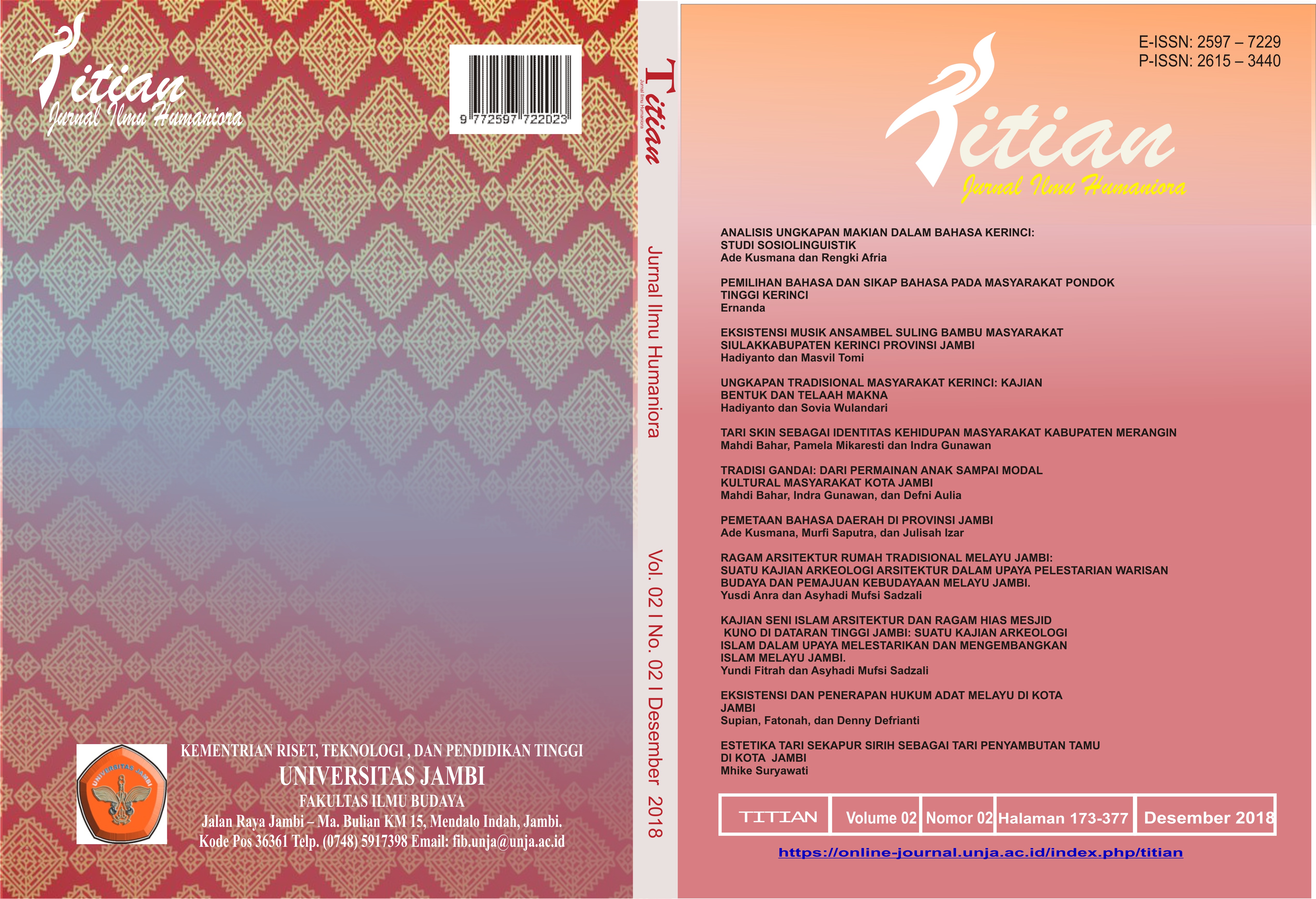PEMILIHAN BAHASA DAN SIKAP BAHASA PADA MASYARAKAT PONDOK TINGGI KERINCI
DOI:
https://doi.org/10.22437/titian.v2i02.6087Abstract
This study aims at investigating language choice and language attitudes among the Pondok Tinggi community, in the Kerinci region, Indonesia. The subjects of this study were two groups of informants consisting of 10 members of the older generation and 10 of the younger. A sociolinguistic questionnaire was used to explore the language choice of the informants and an interview was conducted to examine attitudes towards the languages they speak. The results of this study show that the older generation uses Pondok Tinggi in various domains and for different functions while most of the younger generation has started to leave it behind and instead uses the dominant languages, like Indonesian and Minangkabau. The language attitude of both generations towards Indonesian is very positive. It is considered to have economic value and is useful for the future. The old generation shows a neutral attitude towards Minangkabau. The attitude towards Minangkabau tends to be generally positive among the younger generation. It is considered as a social language. The younger generation expressed a negative attitude towards Pondok Tinggi, considering it unsophisticated and of no economic value. Although the older generation uses Pondok Tinggi in daily life, their attitude towards it is not positive. Parents do not transmit Pondok Tinggi to children in the home domain. When intergenerational transmission breaks down, there will be a sharp decline in the use of Pondok Tinggi. Sooner or later it will lose its speakers. Without speakers, it will die.
Downloads
Downloads
Published
Versions
- 2018-12-31 (1)
- 2018-12-31 (1)































